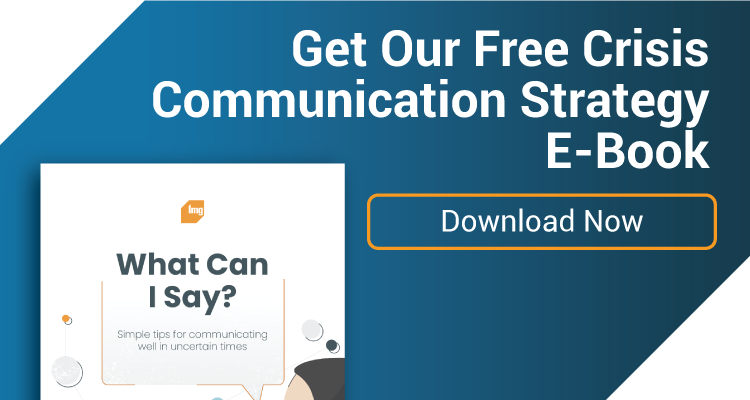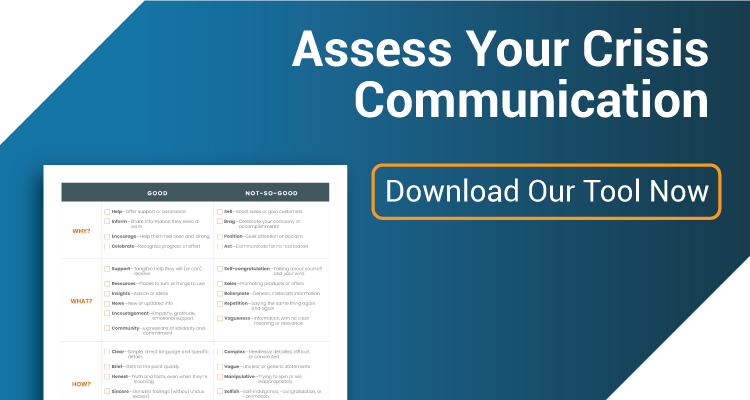In recent months, we’ve all experienced much that is deeply unsettling and, for most of us, unprecedented. The global Coronavirus (COVID-19) pandemic brought daily life to a screeching halt in much of the country. Many areas were hard hit by early, intense outbreaks that strained safety nets and pushed caregivers to—and often far beyond—their limits.
Amid stay-at-home orders and social distancing requirements, millions of people lost their jobs, countless businesses closed their doors, and many more workers and companies adjusted to a “new normal” of remote work, restricted contact, and having to connect with colleagues and serve customers in different ways.
Even while emerging from the initial shock and severe early responses to the pandemic, our nation has been rocked by new challenges entirely different in nature. The killings of George Floyd, Ahmaud Arbery, and Breonna Taylor have brought new attention to the longstanding, deeply entrenched social issues of institutionalized racism, police brutality, and racial inequity and injustice. Outrage at the killings and the systems that contributed to them has inspired thousands of people in hundreds of U.S. cities—joined by many more in countries around the world—to take to the streets in protest and demand action. Their efforts have already had an impact, leading to some changes in policy, new proposed laws, and a growing, national conversation about the issues and commitment to work toward addressing them.
For businesses, being part of that conversation can present unique challenges. In times of great difficulty, we may feel an urgent need to speak up, yet be stymied by uncertainty about what to say, when and how to do so, and whether we should resist this impulse and simply stay silent. Crisis communication, by its nature, can be both more difficult and more important than traditional marketing, advertising, public relations, and customer and employee communications. This holds true whether the crisis is specific to a company or industry, or affecting the entire nation or world. Communication strategy is especially critical when a crisis is caused by or centered on our business, but it’s also essential when we or our communities are simply affected by a crisis.
As an agency, LMG has helped many clients communicate during tense times, when the right words were crucial to help navigate challenging circumstances and work toward positive outcomes. What we’ve learned from this experience is that the same basic principles apply in most or all cases, and the key to success is starting with a thoughtful, honest consideration of a few simple questions:
Why are we communicating?

What is our Motivation? Are we moved by a desire to provide help, share information, offer encouragement, or celebrate progress? Or are we truly more interested in sales, self-promotion, positioning ourselves, or simply doing something without a clear purpose?
What are we communicating?

What will be the Content of our message? Are we able to offer tangible support, recommend relevant resources, share ideas or insights, provide news or updates, or contribute to a sense of community? Or are we more interested in talking about ourselves, promoting our goods or services, publishing generic statements, and bringing little new or concrete information to the discussion?
How are we communicating?

What specific Words should we use? Given the heightened emotion and intense scrutiny, can we craft a message that is clear, concise, honest about facts, sincere in emotion, and selfless in prioritizing the needs of the audience over our own?
When/Where are we communicating?

How will we achieve Delivery of our message? What would be the ideal timing and frequency? Should we focus on the communication channels we own and control, or look to outside platforms and publications? What kind of reach and engagement do we want and need? What costs will be involved, and how will we gauge our impact?
The principles involved are simple, but applying them well can be daunting. To help our clients and others take a more effective, confident approach to crisis communications of all kinds, we created an e-Book: What Can I Say?: Simple tips for communicating well in uncertain times. The e-Book expands on the ideas mentioned above, and it includes a practical checklist tool you can use when creating or reviewing crisis communications. You can download the e-Book for free, and if you read it and find it helpful (or even if you don’t), we’d love to hear from you.
Connect with us on Facebook, Instagram, Linkedin, and Twitter.




